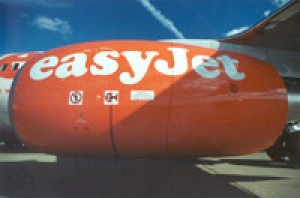easyJet revenues soar despite snow chaos

EasyJet has managed to post strong revenue growth, despite its schedules being severely disrupted over the past month due to the big winter freeze. The Luton-based airline cited higher load factors, a hike in non-UK passengers and greater capacity for contributing to double-digit revenue growth over the past quarter.
Snow disruption cost the airline an estimated £8m, but it said that 90 percent of its scheduled flights took off during the storms.
Andy Harrison, chief executive, said: “EasyJet has continued to deliver a superior performance into the first quarter of our new financial year.”
“The strength of customer demand has allowed us to grow passengers flown by nearly 10 per cent with virtually no yield deterioration, slightly ahead of our initial expectations.
“Economic conditions remain challenging and we continue to expect a tough trading environment. However, the underlying performance of the business in the first quarter has been encouraging and EasyJet remains on track to deliver substantial profit improvement during 2010.”
ADVERTISEMENT
Revenues rose 10.5 per cent to £608m. Passenger number grew to 11m passengers, up 9.1 per cent year-on-year. This growth was driven by non-UK passengers, who now account 54 per cent of EasyJet fliers.
Ancillary revenues soared 21 percent to £127m, and now account of turnover. The average revenue from checked-in bags rose 10 per cent to £4.39 per passenger.
Stripping out these ancillary revenues, passenger revenue per seat – which reflects only the amount paid for the seat – rose 1.9 per cent to £37.60.
The number of flights grew by 14 percent in mainland Europe, including 33 percent at Milan Malpensa following the collapse of Alitalia in late 2008.
In the UK, capacity increased by 11 percent at Gatwick airport and by 60 percent at Manchester. However it withdrew all service from East Midlands, and also cut back Luton.
EasyJet now owns or leases 185 aircraft, up 10 per cent on the last year. Flights also have fewer empty seats – the load factor rose by 2.4 percentage points to 85.8 per cent.
EasyJet now anticipates that with 65 per cent of winter seats already sold, the better than expected first-half revenues will offset most of the effects of the poor weather, leaving revenues per seat only slightly below their levels of last year.

